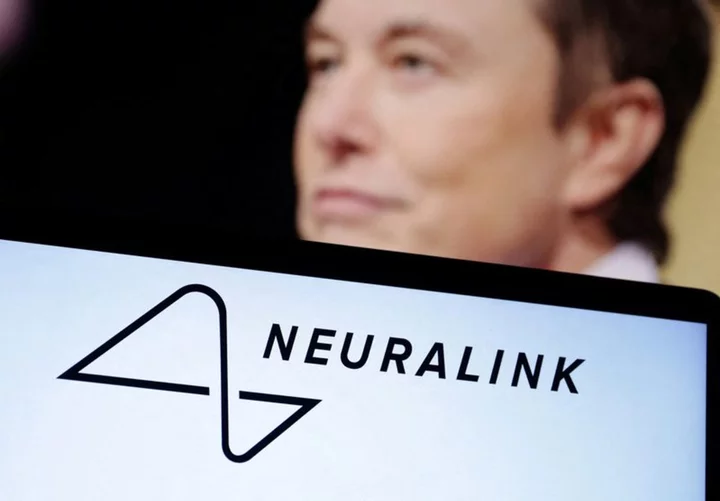By Marisa Taylor
Four U.S. lawmakers have asked the Securities and Exchange Commission to investigate whether Elon Musk committed securities fraud by allegedly misleading investors about the safety of a brain implant being developed by the billionaire’s firm Neuralink, according to a letter to the regulator.
The request for an inquiry came from Democratic House Reps. Earl Blumenauer of Oregon, Jim McGovern of Massachusetts, and Barbara Lee and Tony Cardenas of California, according to the letter sent to the SEC on Tuesday and reviewed by Reuters.
Scrutiny over Neuralink's handling of safety protocols comes as the company prepares to test the brain implant in humans for the first time, a critical milestone for the startup's ambitions to help patients overcome paralysis and a host of neurological conditions.
The letter cites veterinary records obtained from Neuralink experiments in monkeys that indicate the animals suffered "debilitating health effects" from the implants, including paralysis, seizures and brain swelling.
At least 12 young and healthy monkeys were euthanized "as a direct result of problems with the company's implant," the letter said.
Yet Musk, Neuralink's CEO, downplayed investor concerns about the results of its animal testing, the letter said.
Musk wrote that "no monkey has died as a result of a Neuralink implant," in a post to his social media site, X, on Sept. 10. He added that the company chose "terminal" monkeys to minimize risk to healthy ones.
Neuralink did not respond to requests for comment on the letter to the SEC.
Blumenauer and other lawmakers wrote to the SEC that evidence they have reviewed shows that the death of animals in Neuralink experiments "relate directly to the safety and marketability of Neuralink's brain-computer interface."
As a result, Musk's statement "may have violated" SEC rules in denying a connection, the lawmakers wrote.
Last year, Neuralink employees told Reuters that the company was rushing and botching surgeries on monkeys, pigs and sheep, resulting in more animal deaths than necessary.
Reuters found that the push for speed came from Musk, who pressured staff to provide the safety data required by the U.S. Food and Drug Administration to authorize human testing.
In May, Neuralink announced it had received FDA clearance for its first-in-human clinical trial, without disclosing details of the planned study.
(Reporting by Marisa Taylor; Editing by Michele Gershberg and Marguerita Choy)

